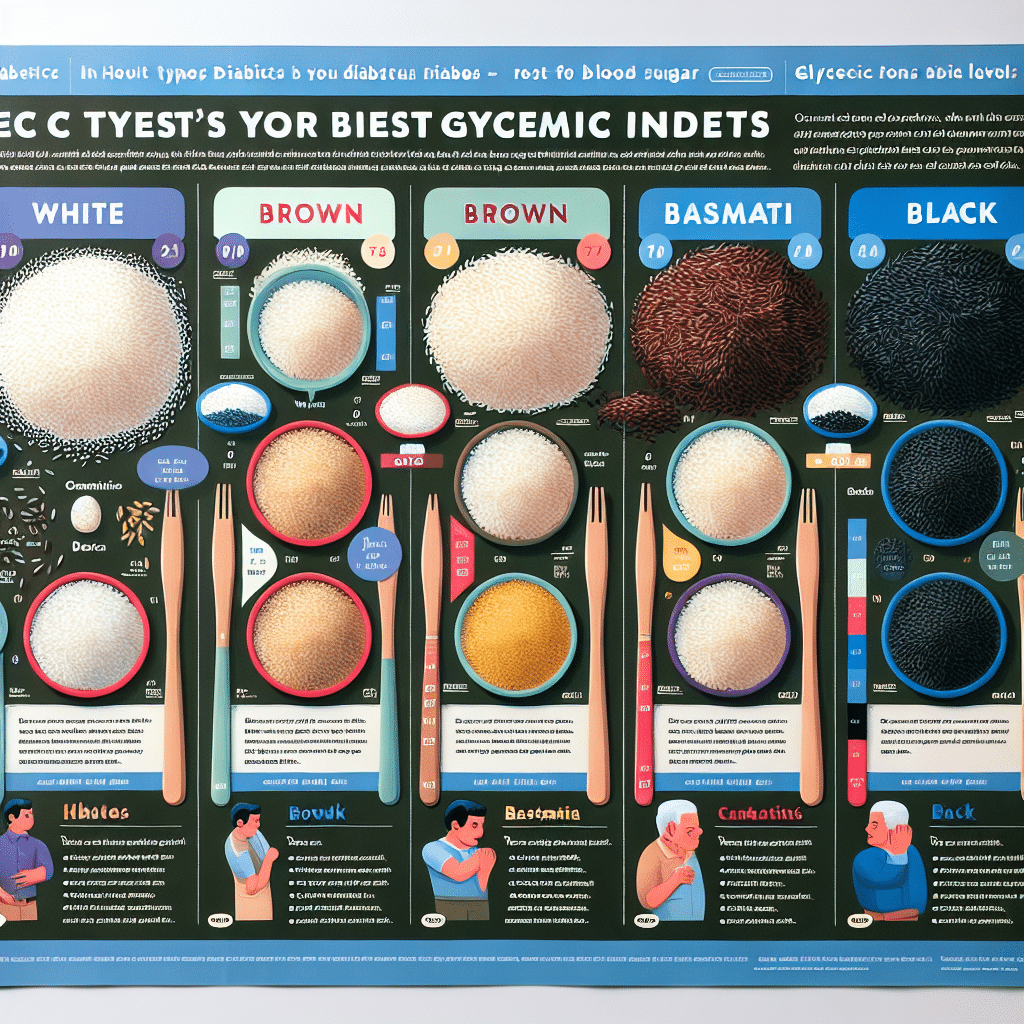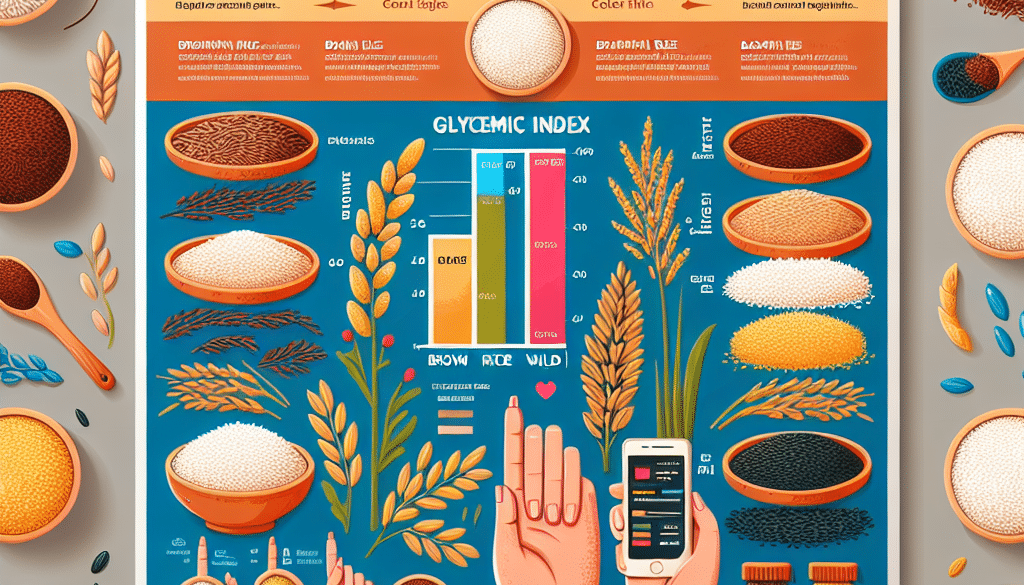What Rice Is Best For Diabetic?
-
Table of Contents
- Best Rice Varieties for Diabetics: A Comprehensive Guide
- Understanding the Glycemic Index
- Whole Grain Rice: A Better Choice
- Basmati and Long-Grain Rice: A Moderate GI Option
- Case Studies and Research
- Portion Control and Preparation
- Conclusion: Balancing Diet and Diabetes
- ETprotein: Enhancing Diabetic Diets with High-Quality Protein
Best Rice Varieties for Diabetics: A Comprehensive Guide

Diabetes is a chronic condition that affects millions of people worldwide. Managing blood sugar levels is crucial for those living with diabetes, and diet plays a significant role in this process. Rice, a staple in many diets, can be problematic due to its high carbohydrate content, which can cause spikes in blood sugar levels. However, not all rice is created equal when it comes to its impact on blood glucose. In this article, we will explore the best rice varieties for diabetics, supported by research, examples, and statistics.
Understanding the Glycemic Index
Before diving into the best rice options for diabetics, it’s essential to understand the glycemic index (GI). The GI is a ranking system for carbohydrates based on their immediate effect on blood glucose levels. Carbohydrates with a low GI value (55 or less) are more slowly digested, absorbed, and metabolized, resulting in a slower rise in blood glucose and insulin levels.
Whole Grain Rice: A Better Choice
Whole grain rice varieties are generally considered better for diabetics due to their lower GI and higher fiber content. Fiber helps slow down the absorption of sugar, preventing rapid spikes in blood glucose levels. Here are some of the best rice options for diabetics:
- Brown Rice: With a GI score of around 50, brown rice is a whole grain that retains its bran and germ, providing more fiber, vitamins, and minerals than white rice.
- Black Rice: Also known as “forbidden rice,” black rice has a similar GI score to brown rice and is rich in antioxidants, including anthocyanins, which may have additional health benefits.
- Red Rice: This variety contains antioxidants and has a nutty flavor. Its GI is comparable to brown and black rice.
- Wild Rice: Technically not rice but a grass, wild rice has a GI score of 35 and is high in protein and fiber.
Basmati and Long-Grain Rice: A Moderate GI Option
Basmati rice, particularly the whole grain version, has a moderate GI score (between 50 and 58). Its lower amylose content may contribute to its slower digestion and absorption. Long-grain white rice varieties also tend to have a slightly lower GI than short-grain types.
Case Studies and Research
Several studies have highlighted the benefits of consuming low-GI rice varieties for diabetics. For instance, a study published in the “Archives of Internal Medicine” found that replacing white rice with brown rice was associated with a lower risk of type 2 diabetes. Another study in the “Journal of Nutrition and Metabolism” indicated that consuming basmati rice led to a smaller spike in blood sugar levels compared to other types of rice.
Portion Control and Preparation
Even with lower-GI rice varieties, portion control is crucial. Diabetics should measure their rice servings and be mindful of the overall carbohydrate content of their meals. Additionally, the method of preparation can affect the GI of rice. For example, cooking rice al dente (firm to the bite) can result in a lower GI compared to overcooked rice.
Conclusion: Balancing Diet and Diabetes
Choosing the right type of rice is important for managing diabetes, but it should be part of a balanced diet that includes a variety of nutrients. Whole grain rice varieties like brown, black, red, and wild rice are better options due to their lower GI and higher fiber content. Basmati and long-grain rice can also be suitable when consumed in moderation. It’s essential to combine these choices with portion control and healthy preparation methods to maintain stable blood sugar levels.
ETprotein: Enhancing Diabetic Diets with High-Quality Protein
For diabetics looking to supplement their diet with high-quality protein, ETprotein offers a range of organic and vegan protein products. Their organic rice protein can be an excellent addition to a diabetic-friendly diet, providing the necessary protein without the added sugars that can disrupt blood sugar management. ETprotein’s commitment to non-GMO, allergen-free products with high purity ensures that diabetics can safely incorporate these proteins into their meals.
About ETprotein:
ETprotein, a reputable protein and L-(+)-Ergothioneine (EGT) Chinese factory manufacturer and supplier, is renowned for producing, stocking, exporting, and delivering the highest quality organic bulk vegan proteins and L-(+)-Ergothioneine. They include Organic rice protein, clear rice protein, pea protein, clear pea protein, watermelon seed protein, pumpkin seed protein, sunflower seed protein, mung bean protein, peanut protein, and L-(+)-Ergothioneine EGT Pharmaceutical grade, L-(+)-Ergothioneine EGT food grade, L-(+)-Ergothioneine EGT cosmetic grade, L-(+)-Ergothioneine EGT reference grade and L-(+)-Ergothioneine EGT standard. Their offerings, characterized by a neutral taste, non-GMO, allergen-free attributes, with L-(+)-Ergothioneine purity over 98%, 99%, cater to a diverse range of industries. They serve nutraceutical, pharmaceutical, cosmeceutical, veterinary, as well as food and beverage finished product distributors, traders, and manufacturers across Europe, USA, Canada, Australia, Thailand, Japan, Korea, Brazil, and Chile, among others.
ETprotein specialization includes exporting and delivering tailor-made protein powder and finished nutritional supplements. Their extensive product range covers sectors like Food and Beverage, Sports Nutrition, Weight Management, Dietary Supplements, Health and Wellness Products, and Infant Formula, ensuring comprehensive solutions to meet all your protein needs.
As a trusted company by leading global food and beverage brands and Fortune 500 companies, ETprotein reinforces China’s reputation in the global arena. For more information or to sample their products, please contact them and email sales(at)ETprotein.com today.












